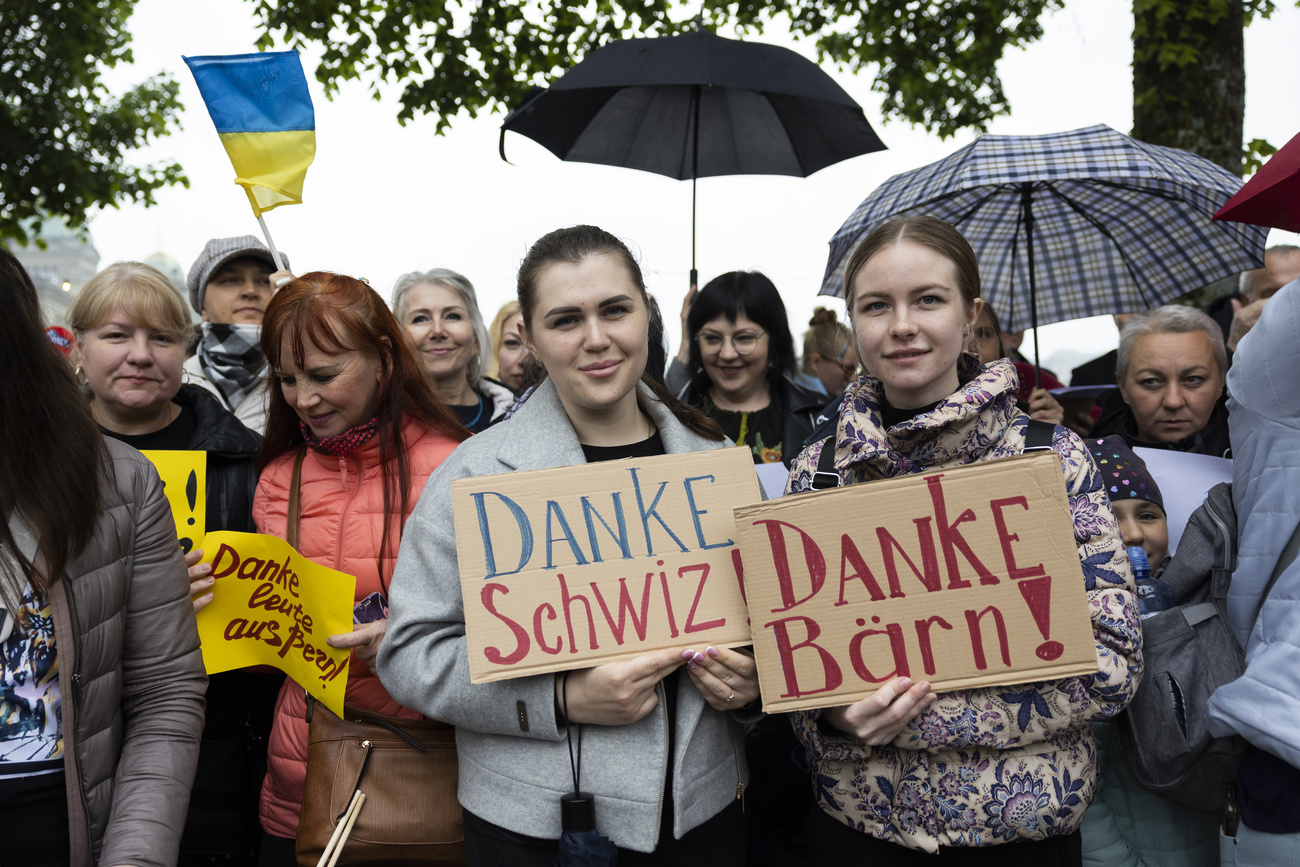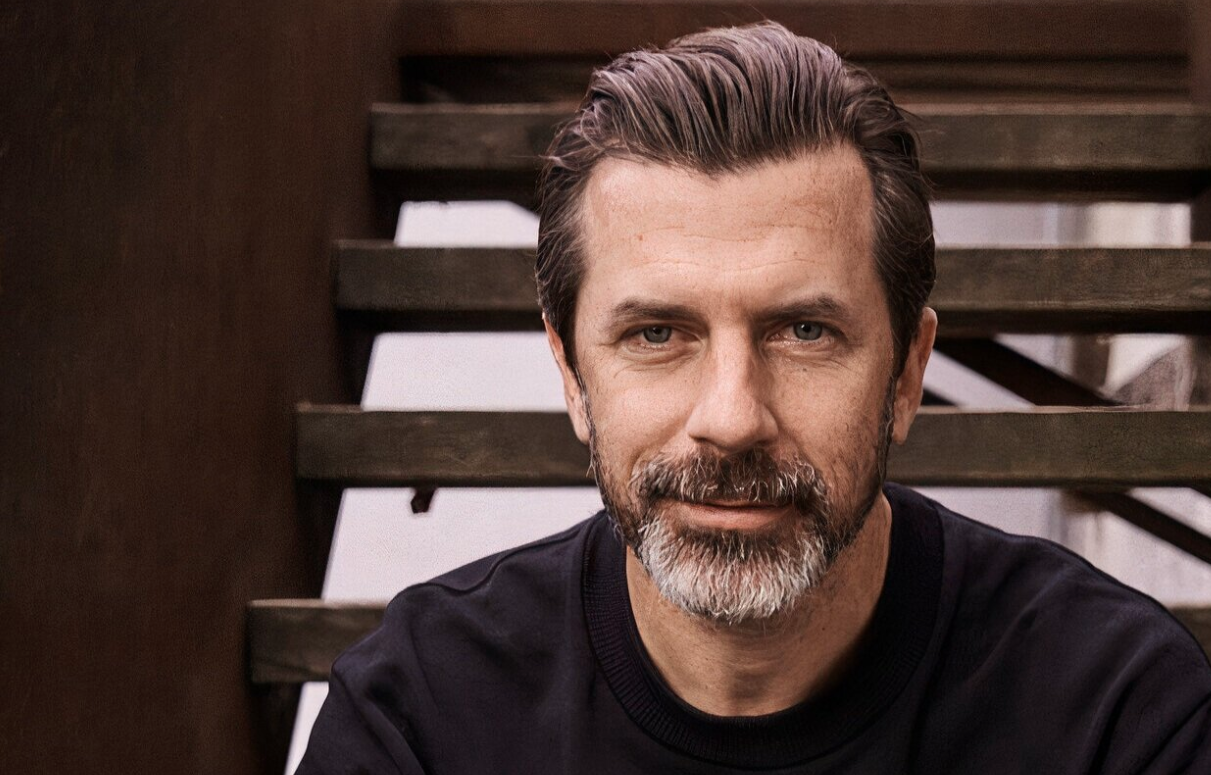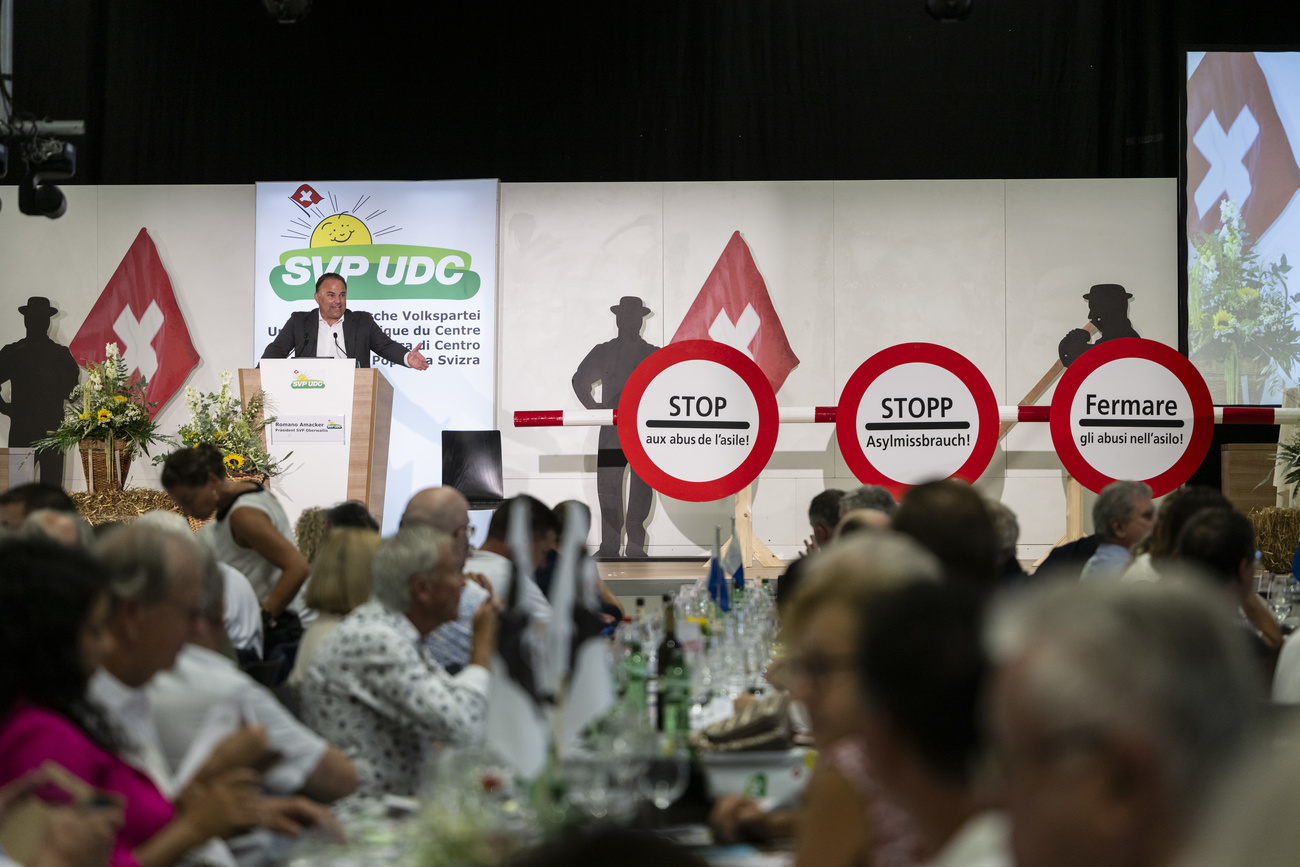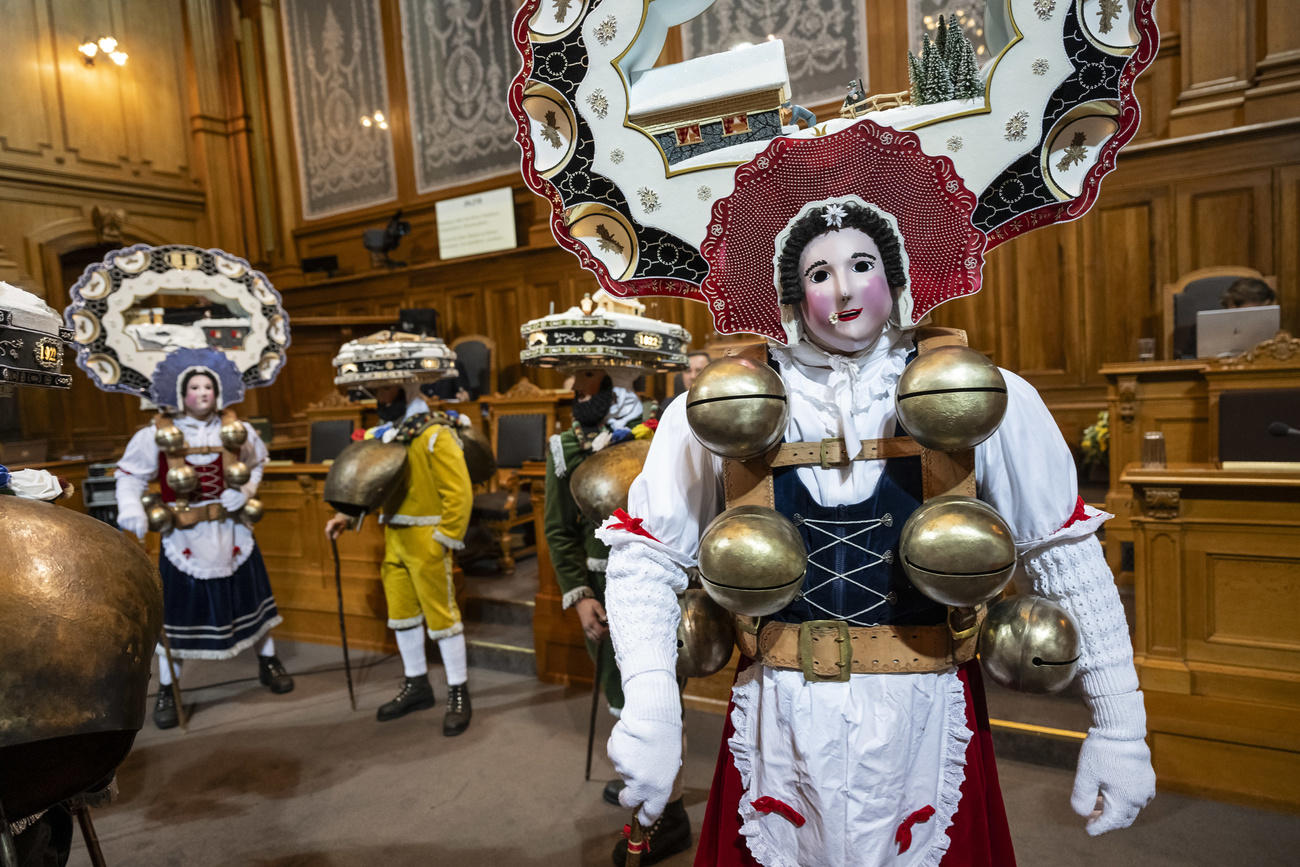

Today in Switzerland
Dear Swiss Abroad,
Swiss politics is moving to the right. A conservative mood has gripped the country, says political geographer Michael Hermann.
A concrete example of this is parliament forcing refugees from Ukraine through the mills of Swiss bureaucracy for the first time. “Switzerland wants to say goodbye to the events surrounding Ukraine without showing solidarity,” warns the (thoroughly conservative) newspaper Neue Zürcher Zeitung (NZZ).

Andreas Caminada, the Swiss star chef, says Switzerland is underestimated in culinary terms.
In an interview with the NZZ, Caminada (pictured) says Swiss cuisine can be seen in all the regional specialities. “But apart from perhaps fondue, there’s no typical Swiss dish that epitomises the whole country.” This has made it difficult to position Switzerland internationally as a food destination, he says. Nevertheless, “we have many great restaurants in Switzerland and the highest density of Michelin stars in the world”.
He sees the reasons for this as consistency, the quality of training and the dual system with apprenticeships. “You can go to a pub in Switzerland today and get something good. You rarely find that kind of consistency abroad outside capital cities, maybe in South America or Italy,” Caminada says. What’s more, “we’re really good hosts in Switzerland”.
Zurich food critic Pascal Grob, who runs the Züri isst (Zurich eats) blog for restaurant guide Gault-Millau, also praises the quality of Swiss cuisine. Grob says that Zurich is an international insider tip and that you also get a lot for your money in Zurich.
- Interview with Andreas CaminadaExternal link in the NZZ (German, paywall)
- Interview with Pascal GrobExternal link in the NZZ (German, paywall) and his Zurich gastrotipsExternal link.

At the start of the winter session, parliament addressed two strong Swiss symbols: the Swiss coat of arms and the aerobatic display team of the Swiss Air Force, the Patrouille Suisse (pictured).
With regard to the coat of arms, it has decided that Swiss national teams may use it. The national football and hockey teams, as well as other teams from other sports, can therefore wear the Swiss cross on their shirts. This might have been taken for granted, but the Coat of Arms Protection Law had prohibited it.
Since 2017, only the Swiss Confederation has been allowed to use the coat of arms. However, companies or clubs could apply for authorisation to continue using the coat of arms within two years if they had been using it for 30 years. Victorinox, the Gymnastics Association and the Swiss Alpine Club SAC, for example, made use of this option.
The Patrouille Suisse, on the other hand, has finally been grounded in its current form. The Swiss Air Force plans to decommission the Tiger F-5 in 2027. However, because this jet forms the centrepiece and working instrument of the Patrouille Suisse aerobatic team, a motion had called for an exception to be made for it – a rescue operation for the Patrouille Suisse. The Senate voted this down yesterday.
- Background to the Swiss coat of armsExternal link on SRF (German), RSIExternal link (Italian)
- Report on the end of the Patrouille SuisseExternal link on SRF (German)

Switzerland is gripped by a conservative mood. This gives the tight-wing Swiss People’s Party more support. The centre-left is losing.
The People’s Party (pictured) is the only Swiss party to have gained votes, according to the latest election barometer from the Sotomo research centre. The People’s Party climbed two percentage points to 29.9%, followed by the left-wing Social Democratic Party with just under 18%, a slight decline. The Greens and Liberals Green have also lost ground. Political geographer Michael Hermann, who led the study, says the continuing shift to the right is in line with a European trend and a conservative mood. Switzerland is increasingly going along with these trends, he says.
According to the survey, the Swiss population sees high health insurance premiums as the biggest challenge, followed by immigration, asylum policy and climate change. “When politics in Switzerland moves to the right, people often want conservative policies. But they get liberal economic policies. They then correct this in the votes, where they tend to favour a more social emphasis,” Hermann says.
- In-depth article on SRFExternal link (German)/ RTSExternal link (French)

Following Russia’s attack on Ukraine, Switzerland granted special protection status to refugees from Ukraine. Parliament is now restricting this practice.
The so-called protection status S no longer applies to people from Ukraine without restriction. Now, only those who have lived in areas that are disputed or occupied by Russia will automatically receive protection.
“Because the war in Ukraine is still going on and the many refugees have become a burden, the mood in the country has changed,” Swiss public television, SRF, said in an analysis. “In addition, cases in which protection status has been abused are damaging to solidarity.”
The NZZ said Switzerland was thus taking a tougher line than most other European countries. “The burden of this narrow-mindedness will once again be borne by others. Namely, those countries that take in the Ukrainians who are no longer authorised in Switzerland.” The decision damages Switzerland’s reputation, the NZZ said, because it “sends a signal to the outside world that Switzerland wants to withdraw from the events surrounding Ukraine without showing solidarity”.
Le Temps in Geneva said: “One year after the federal elections, it’s now clear what the next debates in the federal parliament will look like, against a backdrop of growing mistrust of every person and every refugee family. The government and those members of parliament who see a refugee as more than just a profiteer will have to make major adjustments to their strategies if they don’t want the [right-wing] People’s Party to shape the image of Switzerland in the coming decades.”
- The reports from SRFExternal link (German), RTSExternal link (French), NZZExternal link (German) and Le TempsExternal link (French).

Switzerland in pictures
What’s a New Year’s Eve Claus from Appenzell doing in the federal parliament? He’s walking through the Senate in honour of the newly elected president of the Senate, Andrea Caroni. Normally, these Clauses in Appenzell go from courtyard to courtyard on New Year’s Eve (January 13) to ring in the New Year. The people of Appenzell distinguish between the “beautiful”, the “ugly” and the “beautifully ugly”. This week, only the elaborately decorated beautiful Clauses entered parliament.
Translated from German by DeepL/ts

In compliance with the JTI standards
More: SWI swissinfo.ch certified by the Journalism Trust Initiative



























